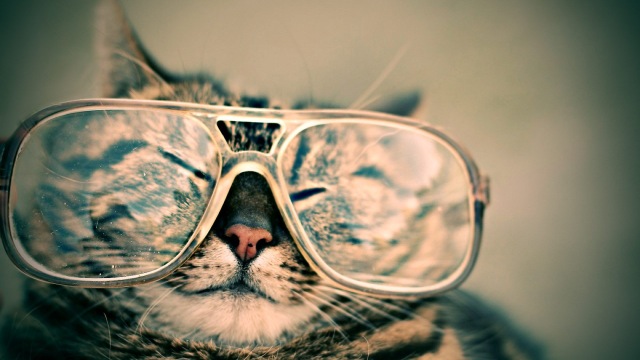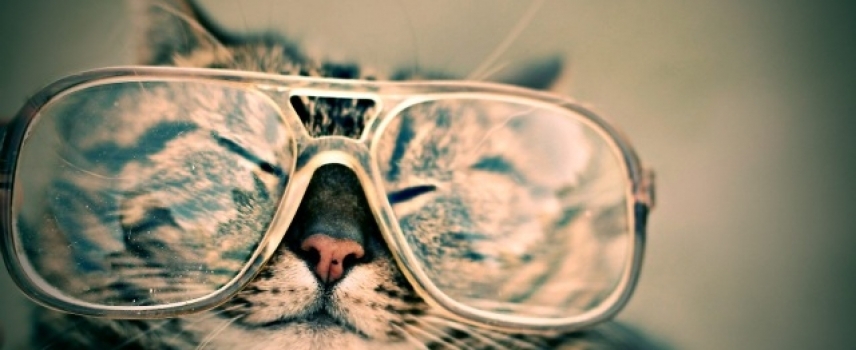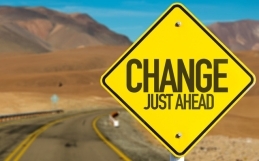
“Happiness is not a station to arrive at, but a manner of traveling.”
–Margaret B. Runbeck
I’ll be happy when I get that job I applied for; I’ll be happy when I get that purse I’ve been saving up for; I’ll be happy when I’m in a relationship; I’ll be happy when I get that raise; I’ll be happy when my car knows how to drive itself; I’ll be happy when I retire with millions of dollars. Do you see what I’m getting at here? Most of us live in a constant pursuit of happiness. That is, if you aren’t trying to figure out where your next meal will come from or fighting for your life in unfortunate circumstances. If your basic needs are met and your life isn’t in imminent danger, you’re more than likely searching for happiness in one way or another.
Most of us are expecting this happiness to come from some outside source; we’re practically waiting for magic fairy to be sprinkled over our heads. We remember how easy it was to be a kid, when we didn’t have to work so hard to feel joy and contentment—when it once came as easily as picking your nose or laughing at the family cat. We recall times when we didn’t need so much stuff to feel like life was worth something. Feeling down sucks, and somehow, imagining all the stuff that would make us happy doesn’t seem to suck. But what really sucks, is working hard to get all that stuff only to realize that happiness didn’t come along with it.
I’ve fallen into the trap we call the rat race countless times. Being born into comfortable circumstances allowed me to play the wanting-buying to fulfill my wanting-being happy for a hot minute-then wanting more game. Each time I’d play, I’d convince myself that this time I’d be happy forever with whatever purchase I was making. I even fell into this trap with the achievements I made. Granted, the duration of the happiness that resulted from those achievements lasted longer than it did when I bought stuff, but it still didn’t last forever. “Oooh if I can just get the highest grade on that exam! If only I crush that paper, get my next degree with honors, then I can prove I’m smart. And then I’ll be happy forever!” Yeah, right. That didn’t work either. I was basically climbing the stairs of a Stairmaster; no matter how much climbing I did, I got nowhere. Were there moments of fleeting joy? Yeah, sure. Some of that stuff felt pretty damn good at the time. When I got my Ph.D. I felt superior for a hot minute, only to quickly realize that I’d next have to get licensed and then go get a job starting from the bottom. Basically, when I realized I wasn’t done climbing and found an entirely new set of stairs with no elevator option, my happiness diminished faster than my bank account after a Nordstrom’s sale.
Now I’m not putting down the notion of having goals or wanting things. I’m all for shiny new things and accomplishments; I wouldn’t be who I am today without them. However, if you’re someone who tries to find happiness through those things; puts off starting your life until you have certain objects in your possession; or won’t turn that frown upside down until you get that bonus check, pay off that credit card, or lose those 10 pounds, then there’s something you might want to explore. Because it’s in that setup of when this happens, then I’ll be happy that the pursuit of happiness fails to deliver any happiness at all. There are countless examples of famous people who kill themselves, lotto winners who end up worse off, and trust fund babies who lose it all to prove that once you reach this pinnacle idea of success and wealth, happiness doesn’t take over you like it once did when you were a child in Disney world for the first time. There it is! It’s the expectation that meeting these objectives will bring you happiness forever that’s the problem, because when it doesn’t happen that way, you end up more disappointed than you started. It’s almost like the typical first sexual encounter. Think about it. You fill your head with all kinds of ideas about how it will be the best and most romantic night of your life, but in most cases it turns into body parts going the wrong way and too many awkward moments of eye contact. It’s never quite like society, the movies, or other people say it’s going to be. It’s nothing like you imagined it would be. And the same goes for material purchases and life achievements. No matter what you fantasized about during those late nights of studying or long months of saving money, it never feels quite like you dreamed it would. And that’s okay. Listen, I’m not trying to be Debby Downer. It’s really okay if you let it be okay. It’s okay when you know that your journey is never over, and chasing something that will give you an everlasting feeling is like trying to keep sand inside a cheese grater. If you know that happiness isn’t up for permanent keeps and doesn’t come from external rewards, you won’t be doomed for a life of dissatisfaction. There’s a Buddhist saying that goes, “Our suffering comes from our attachment to people and things, our repeated attempts to find something lasting where there is nothing lasting to be found.”
Hedonic Adaptation
Think about it: Even if you were given everything you wanted, would it really make you sustainably happy? How many times have we heard from people who seemed to have it all but it still didn’t believe it was enough? There’s a term for this: hedonic adaptation. This is the observed tendency of humans to quickly return to a relatively stable level of happiness despite major positive or negative events or life changes. So when good things happen we turn them very quickly into our baseline expectations, which leaves our void unfilled.
I’m not suggesting that you can’t enjoy pleasant things in your life; I enjoy things all of the time, like writing this article right now. But if we can gain a clearer understanding of the underlying ways that we experience our lives, we’ll have a much better time living with all the uncertainty. We’re constantly told that this or that will make us happy, but when you find yourself constantly disappointed—as so many of us have—it’s time to wake up. Once you’re aware of the deception, you can be more aligned with what’s true. And that, ladies and gentlemen, is what brings more happiness into your life. So much of what we do is designed to avoid pain or seek pleasure; but if we can drop all of that, we can learn how to be happy before anything happens. This type of happiness is the happiness you remember as a child. It’s self-generated, not contingent on outside sources. It’s the opposite of the rat race.
The idea of hedonic adaptation holds that a person’s long-term happiness is not meaningfully affected by events. The concept suggests that we all have a personal happiness set point, and we generally maintain a constant level of happiness throughout our lives, in spite of whatever external events and circumstances take place. To shift our set point we must begin by changing our mindset and shifting our values, goals, attention, and interpretation of situations. As I see it, doing this instead of chasing happiness while it runs in the other direction is a more valuable way to spend our time. This is why I love the quote by Margaret B. Runbeck: “Happiness is not a station to arrive at, but a manner of traveling.” It reminds me that happiness is within the lenses I wear, the ideas I hold, and the values I keep. It helps me realize that even though I have goals, my happiness does not depend on whether or not I meet them. It’s in living my life in this moment, today, content with what I have now and not needing more that I find my happiness. If it comes, I’ll embrace it with open arms; if it doesn’t, I can continue being happy anyway. I constantly remind myself that nothing is permanent. What helps me most, I believe, is remembering that I’ll have bad times, good times, and boring times, but I never have to let them take me permanently away from my happiness set point. How happy I’ll be is up to me.
Talk soon,
Dr. Ilene
Article edited by Dr. Denise Fournier





